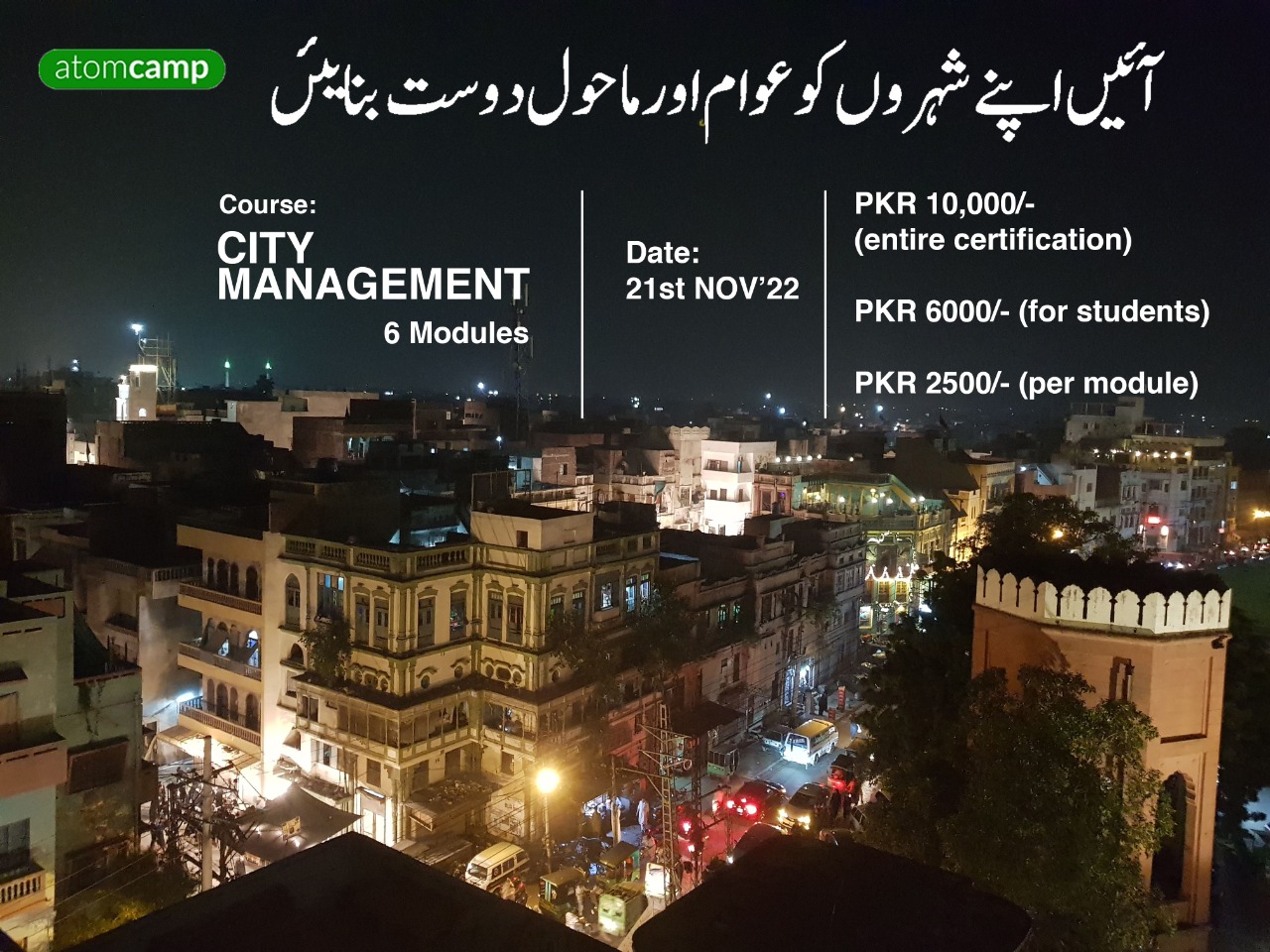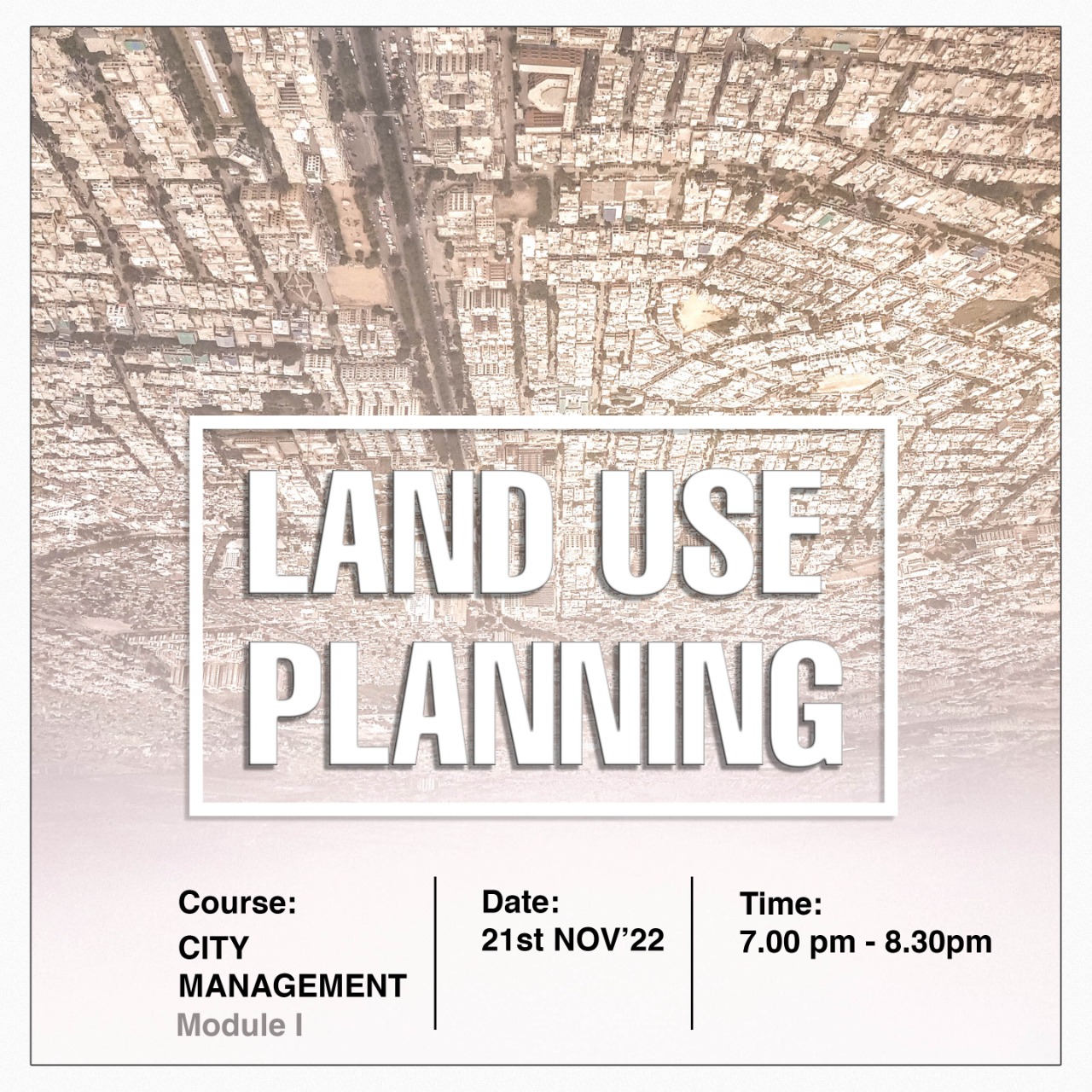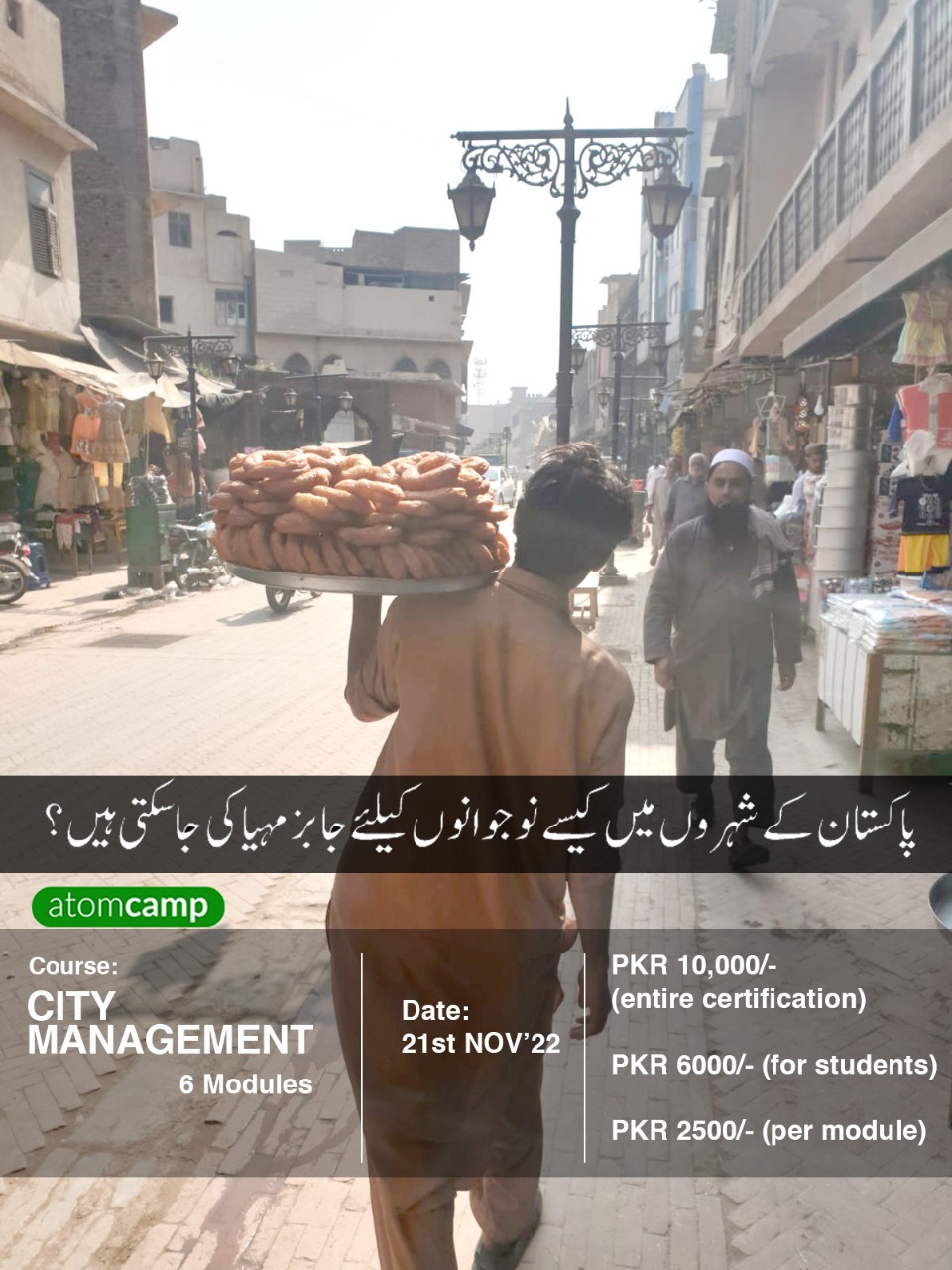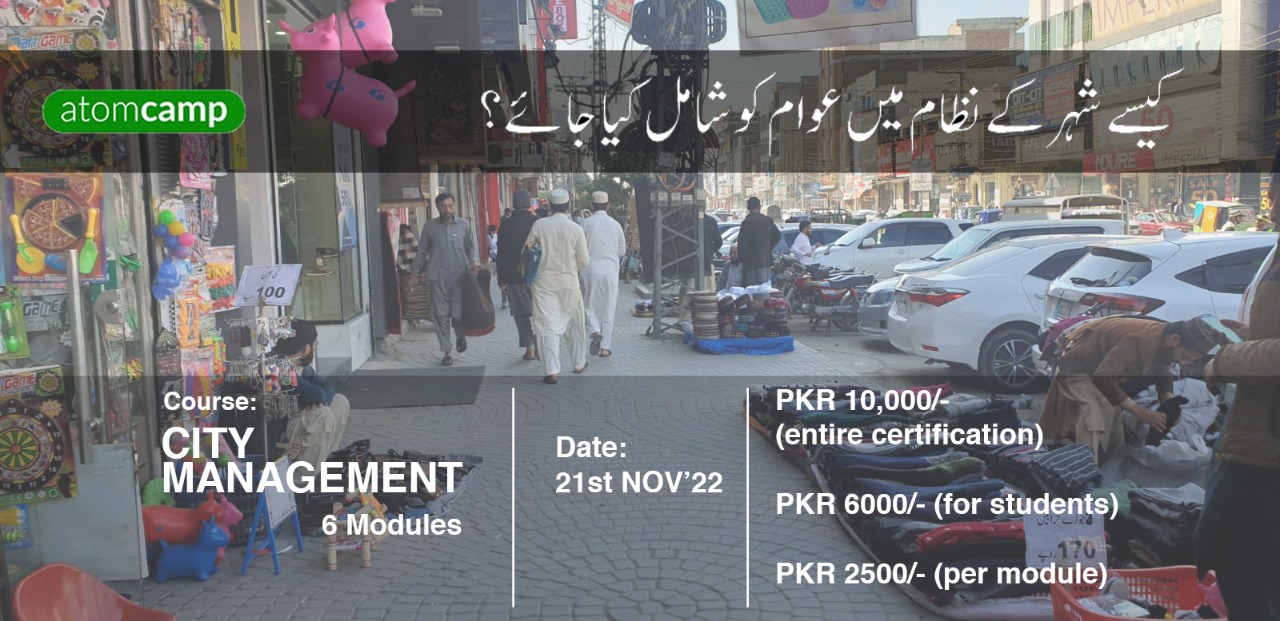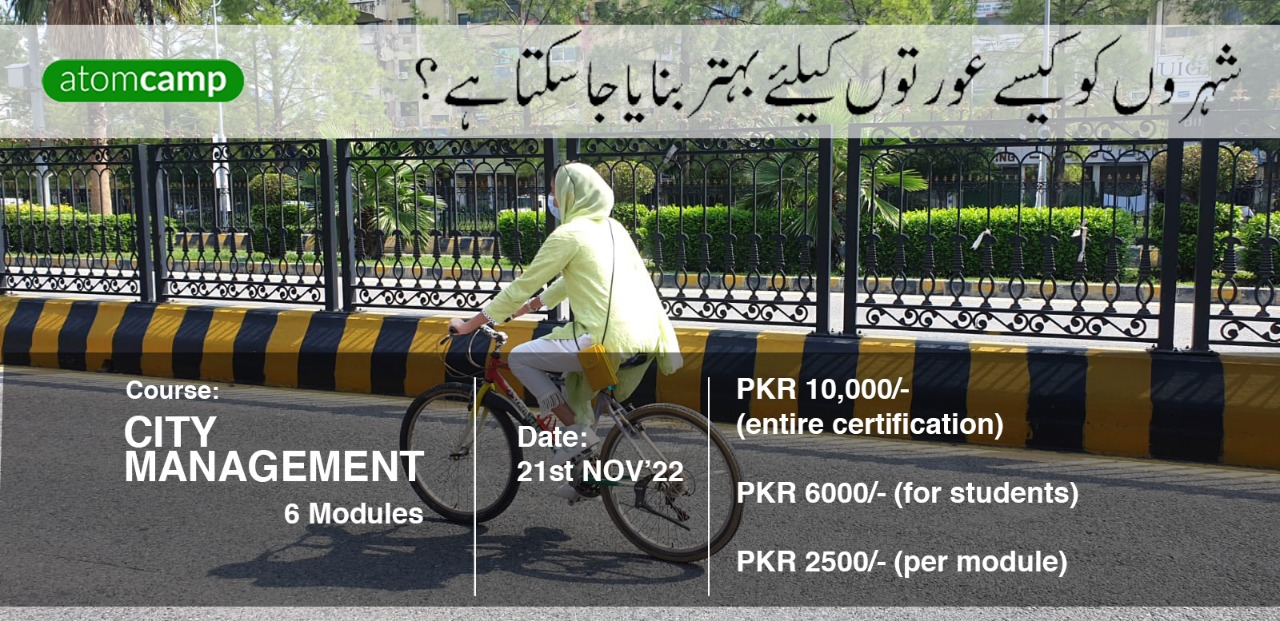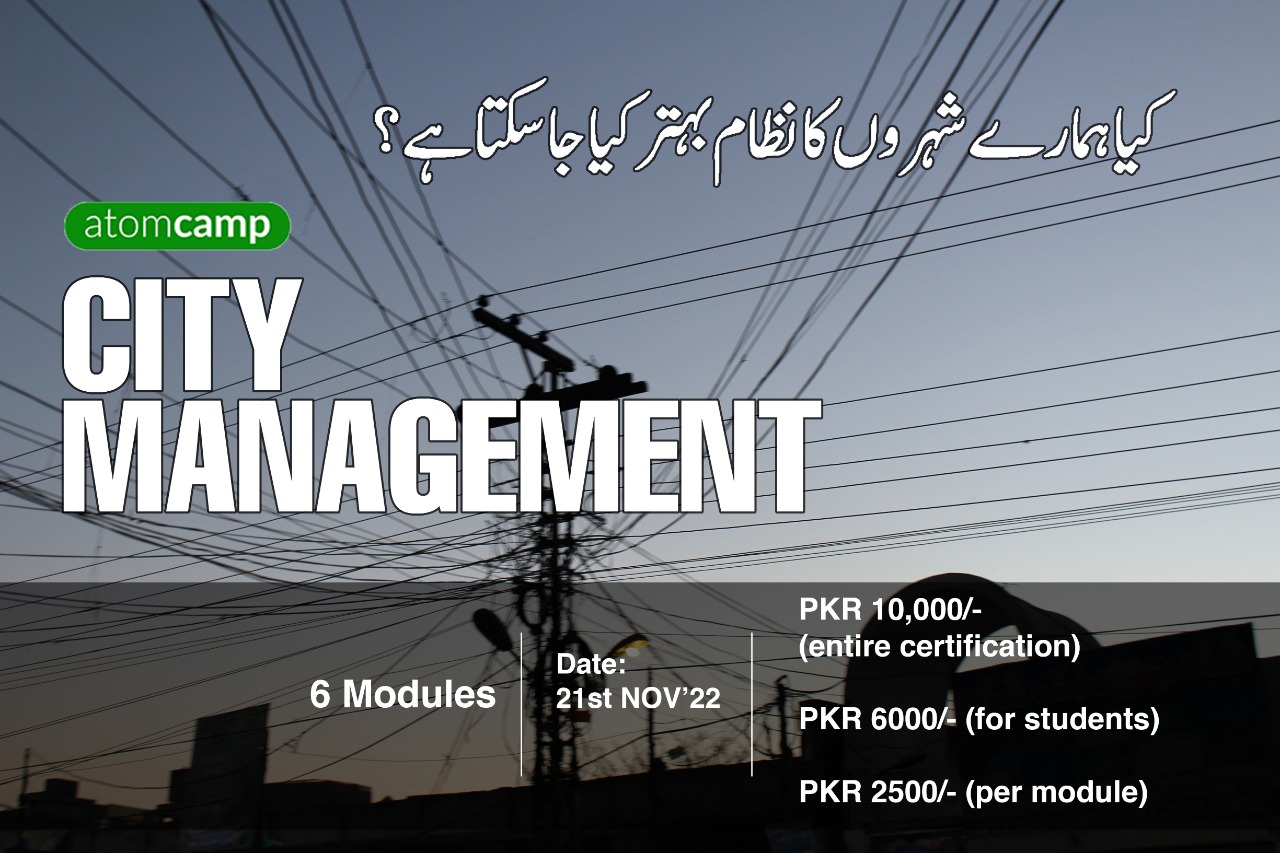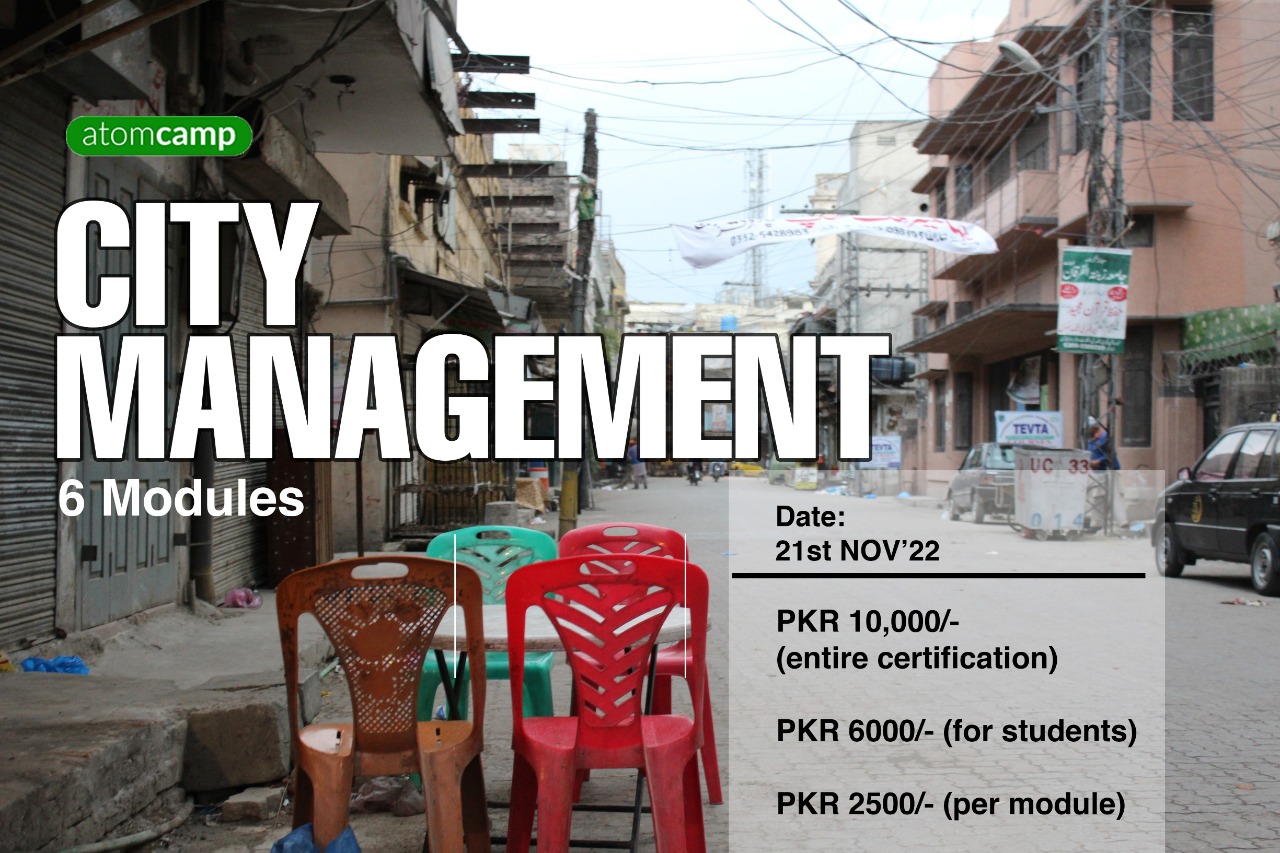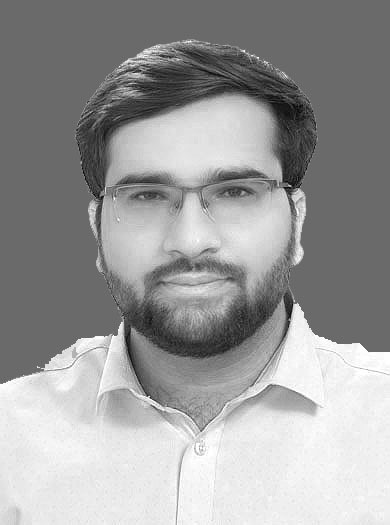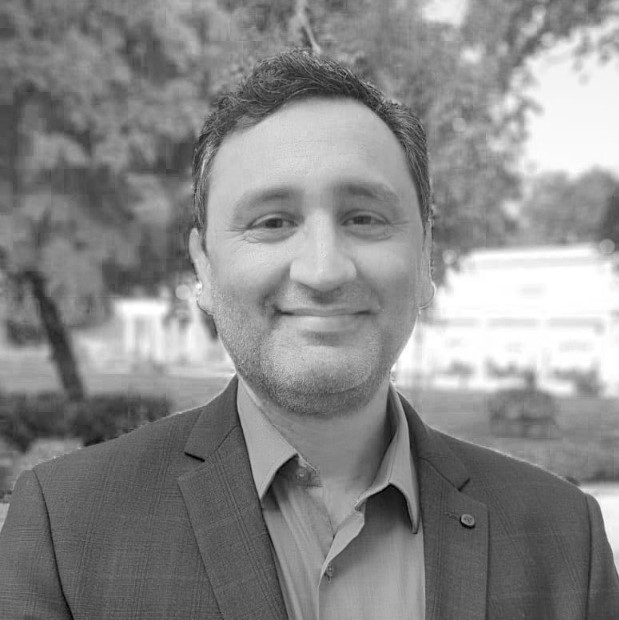CITY MANAGEMENT
Started already!
Per Module: PKR 2500
For Students: PKR 1500
- 6 Modules
- 21st November
- Mon & Thurs, 7:00PM - 8:30PM
What you'll learn
-
What is land in Pakistan and what are property rights?
-
Property rights and land use planning: how are they linked?
-
Why do cities make use of zoning regulations?
-
a. What is zoning and how is it done?
-
b. What are the impacts of zoning on our cities?
-
Why is land-use planning a disregarded sector Pakistan?
-
Zoning laws, urban expansion, and economic development in Pakistan
Why City Management?
Pakistan’s rapidly increasing urbanization rate is putting stress on cities and her resources. With expanding cities, and rising population, the cities are facing tremendous amounts of challenges that comprise from housing to sanitation, healthcare facilities to providing public transport. Although there is an existence of city-level management institutions in Pakistan, unfortunately, their focus has not been on training people regarding how to tackle these issues sustainably and equitably. This course offers a comprehensive look and a hands-on approach to understanding the dynamics of a city through six main modules. Climate change and gender inclusivity will be two cross-cutting themes across all the modules.
Please note that there will be assignments at the end of all the sessions. Certificates will only be issued to those students who will submit completed assignments.
Who is this course for?
– Students and professionals of Architecture, Town Planning, Social Sciences, Management Sciences and Information Technology (IT)
– Officials and members of NGOs and Civil Society.
– Public sector officials.
– Citizens interested to improve the quality of life in their cities.
What is happening in cities of Pakistan, and Why do we need to talk about it?
Land Use and Climate Change
Climate change woes have exacerbated the conditions of millions of people around the world who live in the most vulnerable regions of the city. Pakistan is not new to any of these pressures. The devastating floods of July-August 2022 have put weak and ill-implemented land use planning in the limelight. Outdated zoning plans and masterplans have given way to the rapid, unchecked, and unregulated urban sprawl of the cities. Pakistan is included in the top ten countries in the world that are most vulnerable to climate change although Pakistan is responsible for less than 0.5% of carbon emissions on the planet.
Solid Waste Management and Public Transport
The municipal services of waste management fail to provide sustainable ways to effectively collect, segregate and recycle waste in our cities, resulting in pollution, and air and water-borne diseases which have an impact on the economy and tourism industry. Additionally, although the governments have provided BRTs and metro systems in a few major cities of Pakistan, they are not well connected with the areas of the city. Public transport is crucial for any city to thrive and drive its economy. It reduces the number of cars on the roads. Cities around the world use the model of Transit Oriented development to encourage economic growth and social welfare of the society.
Land Markets and Finance, and Data Science
Local governments and municipalities have creative ways and effective ways to invest in public goods and services through Land Value Capture instruments. Pakistan has non-existent local government systems, and the tax regime is not extensive and comprehensible by most.
With the increasing advancements of technologies in cities worldwide, the use of data and its resourcefulness has helped cities design targeted solutions for problems. With the data, we can improve the services and management of our cities. However, there is less scope for data collection in cities with technology. We will learn about how we can imply the technology in our cities to help manage services for efficient planning and decision-making processes.
Earn a Certificate
Share your digital certificate on social media & professional networks
100% Online Course
Learn from the comfort of your own home while interacting with others
Easy to Understand Content
Localized & easy to understand course content in English & Urdu
Join the atom family!
Become part of our alumni & learning community
Modules
What you'll learn:
1. You will be able to interpret and understand what is land use planning and why is it important.
2. You will be able to analyze land use planning in the existing situations in the cities.
3. You will be able to take the factual and conceptual knowledge of land use planning to generate site-specific land use and
zoning plans for the cities of Pakistan.
What you'll learn:
1. You will be able to analyze different waste management models in Pakistan.
2. You will develop an understanding of how to formulate waste management systems in Pakistan.
3. You will learn how to ensure the recycling of waste in your cities.
What will you learn?
What you'll learn:
1. You will be able to understand how climate change is affecting the cities in Pakistan.
2. You will be able to develop policy responses for climate change adaptation for urban centres of Pakistan..
What you'll learn:
1. You will be able to understand how land markets influence the quality of life in cities and the sustainability of urban growth.
2. You will understand Land Value Capture(LVC) instruments.
3. You will be able to create LVC tools for your own cities.
What you'll learn:
1. You will be able to understand different tools for data collection for analyzing cities.
2. You will be able to carry out an analysis of urban data.
3. You will be able to create LVC tools for your own cities.
Module 1: Land Use Planning
What you’ll learn:
1. You will be able to interpret and understand what is land use planning and why is it important.
2. You will be able to analyze land use planning in the existing situations in the cities.
3. You will be able to take the factual and conceptual knowledge of land use planning to generate site-specific land use and
zoning plans for the cities of Pakistan.
Module 2: Solid Waste Management
What you’ll learn:
1. You will be able to analyze different waste management models in Pakistan.
2. You will develop an understanding of how to formulate waste management systems in Pakistan.
3. You will learn how to ensure the recycling of waste in your cities.
Module 3: Public Transport Planning
What will you learn?
Module 4: Environmental Degradation in Cities
What you’ll learn:
1. You will be able to understand how climate change is affecting the cities in Pakistan.
2. You will be able to develop policy responses for climate change adaptation for urban centres of Pakistan..
Module 5: Land Markets and Finance
What you’ll learn:
1. You will be able to understand how land markets influence the quality of life in cities and the sustainability of urban growth.
2. You will understand Land Value Capture(LVC) instruments.
3. You will be able to create LVC tools for your own cities.
Module 6: Cities and Data Science
What you’ll learn:
1. You will be able to understand different tools for data collection for analyzing cities.
2. You will be able to carry out an analysis of urban data.
3. You will be able to create LVC tools for your own cities.

